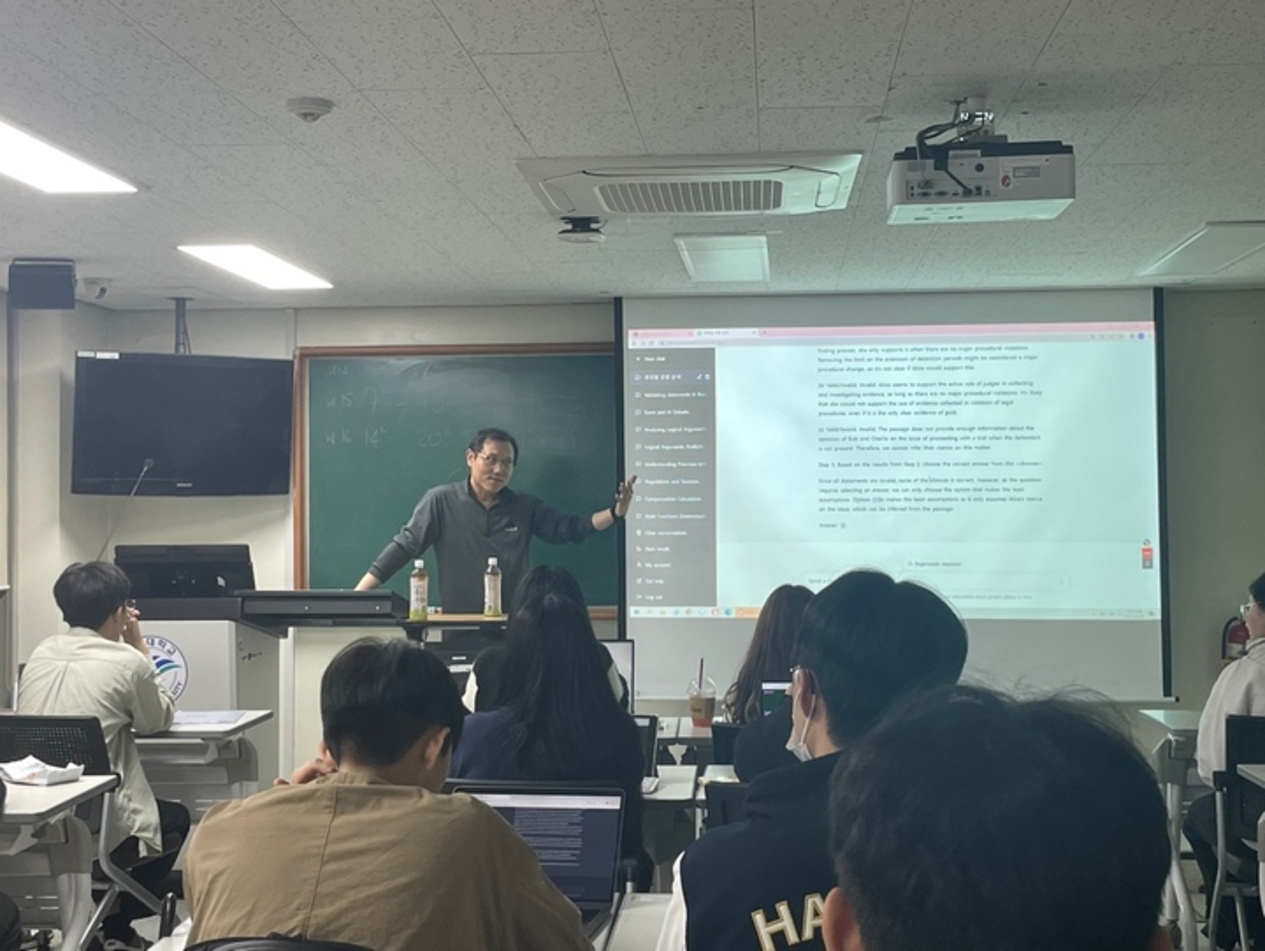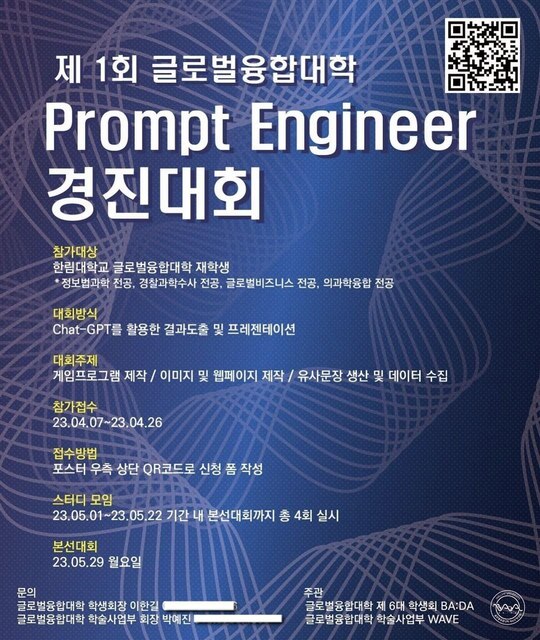On April 5th, at the School of Global Studies (SGS), an exciting event called the Prompt Engineering Competition took place. The competition involved the participation of Professor Ro-Seop Park from Hallym University’s Legal Informatics and Forensics Science (LIFS) lab, adding valuable expertise to the event.
The Prompt Engineering Competition is an academic activity designed to foster creative problem-solving skills and encourage the generation of innovative results by leveraging various prompts. This competition provided an exceptional platform for graduate students from Hallym University’s LIFS lab and students from SGS University to collaborate and explore the process of utilizing ChatGPT to derive output values.
During the seminar, the participants were exposed to a range of prompts, including the ZERO-SHOT, FEW-SHOT, and CoT prompts. These prompts served as catalysts for stimulating diverse responses from ChatGPT based on different prompt settings. By observing the varied outputs generated through these prompt variations, the students gained valuable insights into the influence of prompts on the system’s responses. This experience provided them with new perspectives and expanded their understanding of how prompts can shape the outcomes of AI models like ChatGPT.

Prior to the competition, the students engaged in regular study sessions with Jee-Won Park, a graduate student pursuing the MSc Course in the LIFS lab. These sessions, held once a week over the course of a month, allowed the teams to discuss and evaluate their progress, exchange ideas on achieving the desired output values, and seek guidance from the graduate student. These study sessions not only enhanced the students’ technical skills but also fostered a collaborative and supportive environment that facilitated their learning and problem-solving abilities.
Overall, the Prompt Engineering Competition provided an exceptional opportunity for students to explore the potential of ChatGPT and the impact of various prompts on its responses. Through collaboration, knowledge exchange, and dedicated study sessions, the participants were able to deepen their understanding of AI systems and gain valuable experience in utilizing them to solve real-world challenges. The event undoubtedly contributed to their academic growth and development as aspiring professionals in the field of legal informatics and forensics science.



